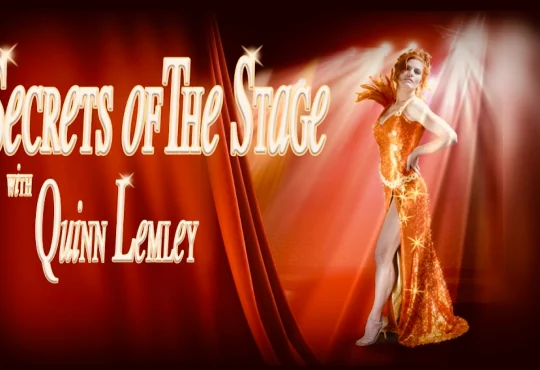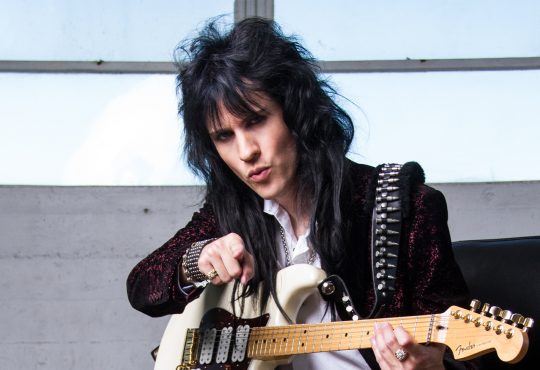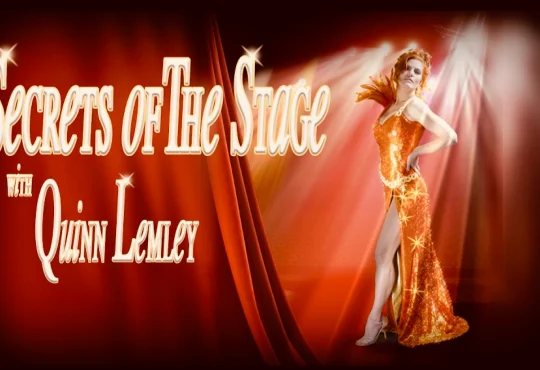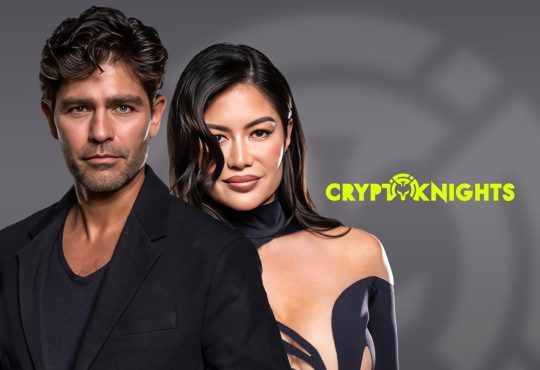Nahnatchka Khan on Rethinking the ‘Strong Female Character’
Audiences want to see their experiences reflected back at them on television.
Audiences want to see aspirational stories on television.
People don’t like to feel challenged, they want escapist entertainment.
People want to feel challenged, they don’t want to waste time watching fluff.
These are just a few of the cherished maxims that TV executives have been throwing around the halls of development for decades. And my personal favorite, as a working writer-producer for many years: You know what this show needs? A strong female character.
It’s not clear when “strong female character” became a box to tick off on the development checklist, but the breakout success of Roseanne in 1988 might have had something to do with it. Here was a woman who was the center of her family, who didn’t look or sound like the star of a TV show “should.” She wasn’t trying to make herself smaller to avoid ruffling feathers, and she truly embraced the meaning of the phrase “tough love.” Above all else, she felt real, like women you actually know.
She was also a tough act to follow. The inevitable knockoffs trotted out after something succeeds never work, because people can sense the inauthenticity. In order to emulate the spirit of what audiences are responding to but not the letter, you have to really commit to the idea, to delivering on the promise of the premise. Otherwise, “strong female character” becomes an empty — and lazy — phrase used to describe any woman who is central to a show. Once, when I questioned this choice of words in reference to a particular character, an exec said to me, “Of course she’s a strong female character — her name is in the title!”
Obviously, as societal and cultural attitudes have evolved, so has the idea of what a strong woman is. Consider I Love Lucy, which premiered 70 years ago. Looking back through a 2021 lens does a disservice to what a series like that meant at the time — a prime-time showcase for a very talented female comedian, on one of only three networks (!) for viewers to turn to. But it is 2021, so we can’t completely ignore the premise: A housewife who just wants to get into show business has to go around her unsupportive husband — who is in show business — to try to get a foot in the door despite him. Lucy Ricardo was a trailblazer, for sure, but was she strong?
How are we even defining the strength we want to see in our female characters? Is it someone who’s a badass? No-nonsense? A bitch? For a long time, in order to be considered strong, the prevalent thinking was that women needed to act like men.
Maude and Murphy Brown were two of TV’s brassiest, most outspoken women, and each paid the price for it in some ways. Initially created as a foil for Archie Bunker in All in the Family, Maude (played by the amazing Bea Arthur) was a proud feminist, a so-called limousine liberal. But it felt like she was crafted strictly as the anti-Archie, so audiences could laugh at both and take neither seriously. Seeing Candice Bergen’s Murphy Brown, a curmudgeonly news anchor fresh out of rehab, stalk through the newsroom in wide shoulder pads was revolutionary even in 1988 — roles like hers had typically been reserved for men. But she also seemed purposely desexualized so that audiences could take her seriously as a career woman. Both of these shows had episodes that caused a national uproar: Maude’s decision to have an abortion, and Murphy’s decision to become a single mother. The reaction to those storylines showed that the characters were popular enough to elicit passionate reactions — but also that audiences wanted to keep them in familiar boxes.
In the late Nineties, we met Carrie Bradshaw, Ally McBeal, and Felicity. All classic characters, they were single women who didn’t rely on men to support them — yet their lives revolved around men anyway, in the pursuit of the “one big love.” Carrie (Sarah Jessica Parker) was a successful writer with fierce female friendships . . . who obsessed over Mr. Big and made it her six-seasons-and-two-movies mission to get him. Ally McBeal (Calista Flockhart) traded in Murphy Brown’s shoulder pads for short skirts, which was groundbreaking in its own way, a declaration that a woman could be sexual and good at her job. But she also pined for her married ex-boyfriend and had a habit of seeming like . . . she didn’t exactly know . . . what she was . . . doing . . . all the time? And then there’s Felicity (Keri Russell), who followed a dude she liked to college because he wrote something cute in her yearbook. Honestly, no notes on this one. It’s Felicity, we love her, leave her alone!
Is the iconic Mary Richards from The Mary Tyler Moore Show a strong female character, or her modern-day analogue Valerie Cherish (Lisa Kudrow) from The Comeback? Their series aired decades apart, but they’re both different versions of women trying to make it in a man’s world by playing within established rules. Mary was a single woman in a 1970s newsroom, trying to smile and not get sexually harassed while proving she was competent. Thirty-five years later, we had Valerie desperately striving to convince the hostile, male head writer of the terrible sitcom she’s on that she’s actually a good actress.
All of these examples demonstrate progress in representation — and problems with it, too (including a glaring lack of diversity). Thankfully, in the past decade, there’s been a seismic shift in the fullness of female depictions on TV. The now well-known industry disruptors — the streaming platforms, led by Netflix — have created an unprecedented demand for content, and with it, opportunities for new storytellers. If the arc of television history has been long, there’s recently been a sharp spike in imagination, which has given us Issa Dee (Issa Rae), the everywoman struggling to find her path in Insecure; Arabella (Michaela Coel), the internet-famous author confronting trauma in I May Destroy You; Sister Night (Regina King), the perp-beating renegade cop from Watchmen; basically all of the women of Orange Is the New Black; and more complicated versions of white female characters, like Pamela Adlon’s Sam Fox, the divorced mom trying to keep it together in Better Things, or Eleanor Shellstrop (Kristen Bell), the self-described “Arizona trash bag” of The Good Place.
What the success of these characters shows is that not only is it OK for a woman to be all of the things, but that viewers want to see them be all of the things. Strength is no longer defined by a single quality or drive, but rather by the degree to which a woman is allowed to be complicated, to be fully realized and deeply flawed. Take Rue (Zendaya), the newly sober teenager at the center of HBO’s Euphoria. She struggles from beginning to end of Season One, ultimately giving in to her addictions. But she also has a clear point of view. She’s “strong” because she is “weak” — she’s human.
Netflix’s animated trip through adolescence, Big Mouth, offers us the hormonal tweens Missy and Jessi (voiced by Ayo Edebiri and Jessi Klein), acknowledging that the horrors of puberty are not solely a male experience. It can be just as terrifying and funny through the eyes of girls. Hulu’s High Fidelity, meanwhile, took a white, male lead played by John Cusack in the 2000 film and transformed him into Zoë Kravitz’s Rob Brooks, similarly probing her failed relationships.
These characters all have a new element that might not be apparent at first: self-awareness. High Fidelity can be described as a show about a woman searching for love, sure; but instead of looking outward — “Why can’t I meet a man?” — Rob is looking inward, asking questions about herself. Jessi manifests a “hormone monster” because she has so many questions about what she’s going through. Arabella is quite literally looking back at her life, at a specific night, trying to parse out the intersection of liberation and exploitation. Sam Fox might seem like a typical overworked single mom; a closer look reveals a woman who isn’t trying to find a man to make her household complete, but trying to raise three young women to be just as flawed and strong as she is, and her own mother was before her.
Maybe someday we can do away with the phrase “strong female character” altogether — we’ll know we’ve achieved parity when the gender signifier is no longer needed to quantify a woman’s strength. Or perhaps the true mark of a strong female character is a woman who’s not defined against anything other than what she is. Someone who’s allowed to just be. Like women you actually know.
Nahnatchka Khan is an Emmy nominee and showrunner whose work includes ABC’s “Don’t Trust the B**** in Apartment 23,” “Fresh Off the Boat,” and NBC’s upcoming “Young Rock.”







